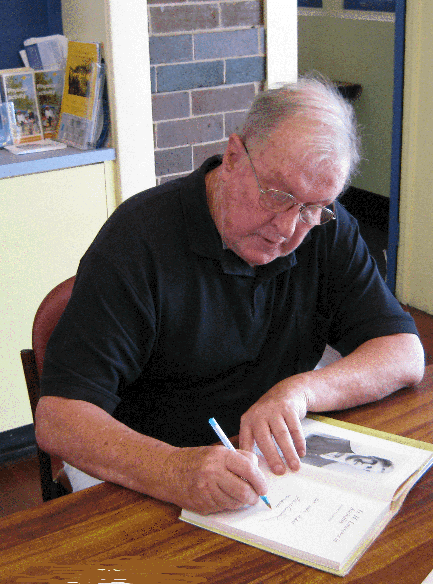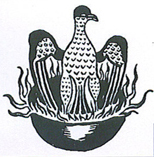|
Ring
a ring a rosie
A pocketful of posies
a-tishoo!, a-tishoo!
We all fall down.
Today I am here to
talk about Sir Charles Rosenthal, known for most of his life as
"Rosie".
The nursery-room poem I began with has sinister overtones. "Rosie"
is thought by some to refer to a red rash that victims of the
plague first evinced. Posies were the Middle-Age's only protection
against infection. The plague brought on sneezing. And, inevitably,
they fell down, dead.
Rosenthal - Rosie - also has some sinister undertones to his life
story. But I will return to that aspect of my topic in a moment.
Meanwhile, you would be perfectly justified in asking why I am
talking to you today. What brought me here?
I have scant connections with Marrickville. When I was a young
reporter I was sent out to cover a meeting of Marrickville Council.
I turned up at Marrickville Town Hall, only to find the council
met in Petersham Town Hall.
My mother used to
come to dances at Marrickville Town Hall (and I think the Marrickville
Strutters, who used to put on these occasions, only recently gave
up their strutting).
I once played school
Old Boys tennis at the excellent lawn tennis courts at Marrickville
Tennis Club.
Our DH Lawrence Society
holds its AGM at Minhs, further up Marrickville Road in Dulwich
Hill (and a very good Vietnamese restaurant it is, too).
I helped found the Glebe Society, and I know when I see - as I
do around me today - a suburb, like Glebe, that is coming up in
the world.
And I am very familiar
with the yum cha restaurant next door to this Herb Greedy Hall,
and I hope that some of you will join us there after this talk.
Yet my knowledge of Rosenthal's links with Marrickville is also
limited. I know he was connected with the nearby Holy Trinity
church in Dulwich Hill, which, although he may not have designed
it (his entry in the Australian Dictionary of Biography is apparently
wrong in this regard) is where he often officiated as choirmaster
and organist.
He had a strong association with church architecture, and for
some years he was responsible for that aspect of Anglican church
activity in northern NSW. He was also closely associated with
architectural work in the Blue Mountains, and built war-memorial
arches at Lawson and Blackheath, where he also laid the foundation
stone for the Blackheath Golf Club. He designed some fine residential
buildings in Sydney, including the outstanding Darnley Hall in
Elizabeth Bay.
Originally born in Berrima in 1875, the son of a Danish
|
|
father and Swedish
mother, he was articled to a Melbourne architect, and got his
first job in Perth as a draughtsman. He
later worked in Coolgardie where he also pursued his interest
in music, and particularly lieder. He had a fine bass voice, which
went well with his manly, robust figure.
Though he had an
entrepreneurial streak, he did not, apparently, have much of a
head for figures, and his first bankruptcy led him to quit WA
in 1898. Remarkably, he returned overland to Melbourne by bicycle,
alone, across the Nullarbor plain (without tyres!). His physical
abilities and bravery - foolhardiness even - became a byword in
his later life.
Very early on he became interested in military matters, and was
an artillery officer in the militia well before the First World
War. He was also interested in aviation, especially how it might
be used for artillery "spotting" in war. Around 1901
he moved to Sydney with his wife and three sons, working in partnership
with another architect, before striking out with his own practice.
He also pursued his military and musical interests in Sydney.
However, it was the war that made his reputation as a military
leader and later in politics.
Today, this is averred to in his entry in the ADB (which, I might
add, I did not write).

Robert
Darroch signing a copy of his
book, DH Lawrence in Australia
|
I quote its second-last
paragraph: "Rosenthal may have been a part-model for the
authoritarian ex-soldiers' leader Benjamin Cooley in DH Lawrence's
novel, Kangaroo (London 1923). Rosenthal had been the founding
secretary in 1921 and later president of the King and Empire Alliance,
with which Lawrence had been in contact, probably through WJR
Scott."
|

